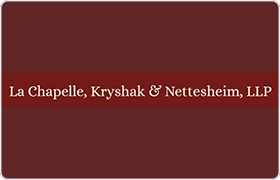Babcock Foreclosure Lawyer, Wisconsin
Sponsored Law Firm
-
 x
x

Click For More Info:
-
La Chapelle, Kryshak & Nettesheim, LLP
262 W Grand Ave Wisconsin Rapids WI 54495» view mapReal Estate Law Passionate and Dedicated Attorneys
The law firm of La Chapelle, Kryshak & Nettesheim, LLP, has provided legal services to the people of central Wisconsin for over a century.
800-886-1251
Not enough matches for Babcock Foreclosure lawyer.
Below are all Babcock Real Estate lawyers.
Nicholas R. Abts
✓ VERIFIEDEstate, Divorce & Family Law, Real Estate, Business, Power of Attorney
Nicholas practices law in central Wisconsin, serving clients in Wood County, Portage County and the surrounding area. He focus on estate planning, bus... (more)
Shari L. Post
Divorce & Family Law, Criminal, Social Security, Landlord-Tenant
Status: In Good Standing Licensed: 21 Years
Daniel C. Arndt
Accident & Injury, Real Estate, Estate, Workers' Compensation
Status: In Good Standing Licensed: 40 Years
Lawrence A. Trebon
Business, Estate, Real Estate, Immigration
Status: In Good Standing Licensed: 51 Years
Jacob Luke Skibba
Education, Foreclosure, Traffic, Criminal
Status: In Good Standing Licensed: 15 Years
Guy Robert Detlefsen Jr.
Family Law, Employment, Real Estate, Wills & Probate
Status: In Good Standing Licensed: 48 Years
Nicholas J. Brazeau
Real Estate, Lawsuit & Dispute, Estate, Divorce & Family Law
Status: In Good Standing
William A. Metcalf
Real Estate, Lawsuit & Dispute, Estate, Accident & Injury
Status: In Good Standing
 Nicholas Abts Wisconsin Rapids, WI
Nicholas Abts Wisconsin Rapids, WI AboutLa Chapelle, Kryshak & Nettesheim, LLP
AboutLa Chapelle, Kryshak & Nettesheim, LLP Practice AreasExpertise
Practice AreasExpertise
